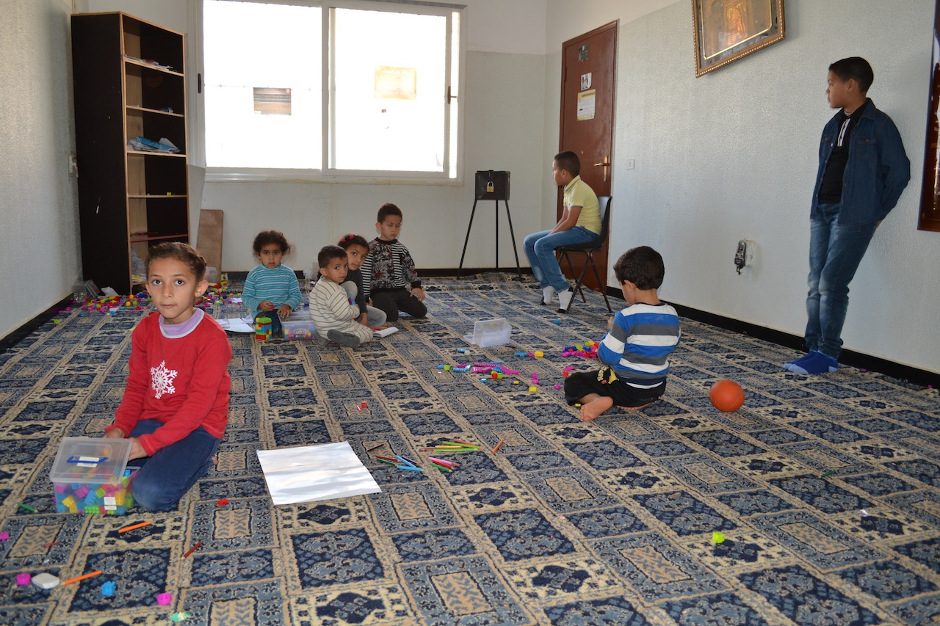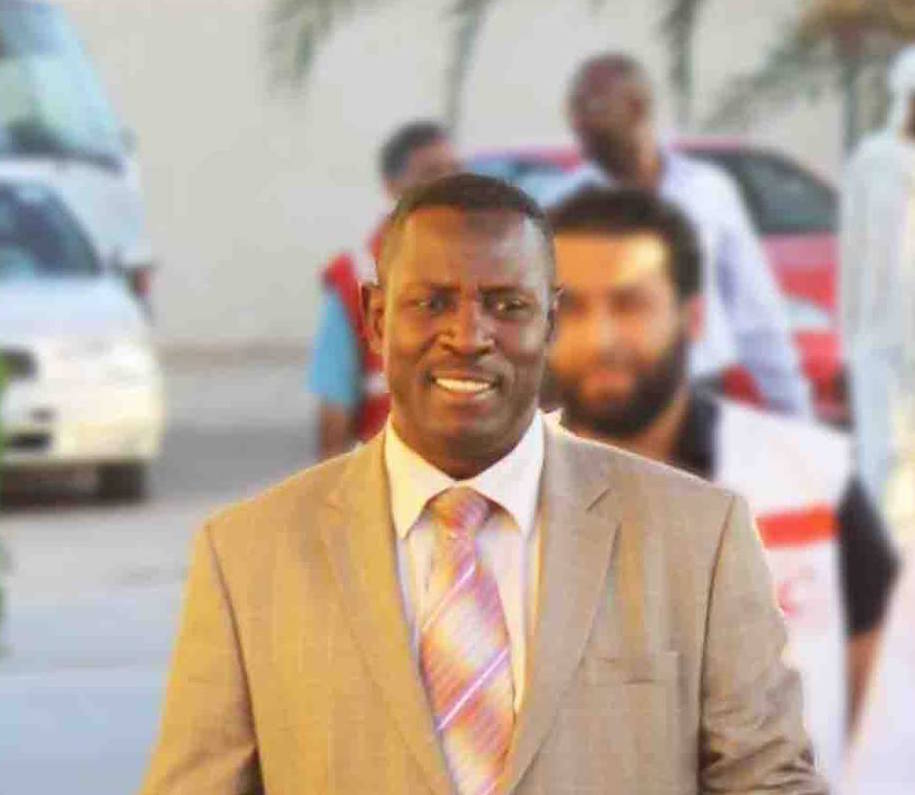By Libya Herald reporter.

Benghazi, 10 April 2015:
Khadija Mabruk’s home has been reduced to a mere mattress laid down on the floor . . .[restrict]of a classroom at the Abubakr Razi School in the Fuwayhat area of Benghazi. Blind and in her 70s, Mabruk moved into the school in December 2014 with her son, daughter-in-law and four grandchildren. The family used to live in Suq Al-Hout, where fighting between extremists and the Libyan National Army (LNA) continues.
“We lost everything: clothes, electronics and furniture. Most importantly, though, I lost LD 5,000 in jewelry I’d bought for my son to marry his wife,” Mabruk lamented.
61 Schools converted into emergency housing
The Mabruk family is one of 25 displaced families living in the Abubakr Razi School, which is only one of many schools offering shelter.
“Sixty-one schools in Benghazi are hosting displaced people. In each school, there are between 17 and 20 families,” explained Said Amaami, head of Benghazi is Our Family, a local NGO that is caring for them. According to officials from the Benghazi Crisis Committee, about 10 percent of the city’s population is displaced.
Ali Hassan Mohamed has used school benches to divide his classroom-turned-flat into a bedroom, kitchen and living space. Unfortunately, the boundary markers have npt done much to make the rooms more private.
As he has no actual kitchen appliances, he has resorted to using a space heater to boil water for tea.
“It takes more than two hours to boil,” he said, ashamed at not being able to offer any tea.
His main concern, however, is for the health of his four month-old son, Salah. “We recently had him circumcised but were unable to afford the LD 11 to pay for an antiseptic before the surgery. Now he has an infection,” Mohamed admitted.
Resources for those living in the schools are limited, but Benghazi is Our Family is doing its best to help by collecting food from the mosques and trying to make the schools more habitable by setting up showers in the school bathrooms.
War games among children
Gunshots and artillery fire can be heard throughout the day, as the school is located a mere three kilometres from a frontline. War is always present in the schools, even as the kids play.
“When the young children play with blocks, the boys always build tanks or planes. The older boys fight each other and some of the children sit alone and cry for no reason,” said Mohamed Amer, a volunteer.
Dr Naima Samyil Masri, a clinical psychologist who has just started work with the families at Abubakr Razi, says she suspects that many of the children are suffering from post-traumatic disorders that will need treatment.
“I haven’t spent enough time in observation with the families yet, but the children are certainly at risk. Once I am able to identify the most serious cases, I will invite them for monitoring and treatment at the polyclinic where I am working,” Masri explained.
Housing or education?
Amaami is angry with the international NGOs that “never respond to our cries for help”.
“All the NGOs and journalists that were in Benghazi to help us in 2011 have left, and now we’re having to face this crisis alone,” volunteer Mohamed Amer added.
The families could face another big challenge in a few months. The internationally-recognised government has said that it intends to reopen the schools in Benghazi, which would leave those housed in the schools with no place to go.
“Benghazi is an overcrowded city. There is no more space for building new housing,” Amaami explained.
Yet, Benghazi’s children need to get back to school—to continue along in their education and regain a sense of normalcy. What should come first—education, or housing?
That is the question.









